Prime Minister of Belgium
| Prime Minister of Belgium
Eerste minister van België Premier ministre de Belgique Premierminister von Belgien Premier | |
|---|---|
|
| |
|
State Ensign | |
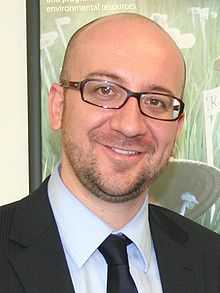 Charles Michel since 11 October 2014 | |
|
Executive branch of the Belgian Federal Government | |
| Member of |
Belgian Federal Cabinet European Council |
| Residence | Number 16, Rue de la Loi / Wetstraat |
| Appointer | Monarch of Belgium |
| Term length | No term limit |
| Inaugural holder |
Étienne de Gerlache (as Chief of Government) Léon Delacroix (as Prime Minister) |
| Formation | 26 February 1831 |
| Website | premier.fgov.be |
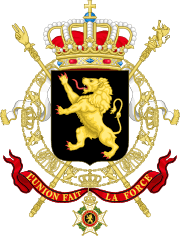 |
| This article is part of a series on the politics and government of Belgium |
| Constitution |
|
Federal Cabinet |
|
| Foreign relations |
|
Politics portal |
The Prime Minister of Belgium (Dutch: Eerste minister van België; French: Premier ministre de la Belgique; German: Premierminister von Belgien) or Premier of Belgium is the head of the federal government in the Kingdom of Belgium.
Although Leaders of Government (French: Chefs de Cabinet) had been appointed since the independence of the country, until 1918 the King often presided over the Council of Ministers, so the modern era of the "Premiership" started after World War I with Léon Delacroix. The political importance of the King of the Belgians has decreased over time, whereas the position of Prime Minister has gradually become more important.
History
Since the independence of Belgium in 1830, governments have been designated with the name of the minister who formed the government as formateur, but that position did not have a specific status. Originally, from 1831 the King of the Belgians presided over the Council of Ministers, but when he was absent, the presidency was taken by the chef de cabinet (Head of Cabinet), usually the oldest or most influential minister. This position gradually became more prominent, and the minister with this title then soon acquired the competency to present the King with the proposed allocation of the various ministerial departments among the ministers.
The title of 'Prime Minister' or 'Premier' was used for the first time in 1918 in official documents and it is at this time that the position was assigned to its own cabinet. Only in 1970 the title was incorporated in the Belgian Constitution with the first state reform. Gradually, the Head of Cabinet replaced the King more often during the first half of the twentieth century, and as such gained importance within government. Nevertheless, given his newly acquired prominence, as a member of the cabinet the Head of Cabinet continued to lead a ministerial department.
With the expansion of voting rights after World War II, more political parties started to win seats in parliament—especially the Belgian Socialist Party—and this made it impossible to achieve an absolute majority in parliament. Since then, coalition governments have been necessary, which has made the task of forming a government by the appointed formateur more difficult. Consequently, the formateur increasingly gained greater respect, and much prestige. Thus the formateur became prominent as a position of leadership. As the ministers of the government now represented various political parties, there was a need for someone to coordinate the proceedings of the various ministers. The Prime Minister was now asserted as the actual head of government, and this is how the office of Prime Minister came into existence.
Function
Besides coordinating government policies, the Prime Minister is responsible for the proper execution of the coalition agreement. He also presides at meetings of the Council of Ministers and manages conflicts of competencies between the ministers. In addition, the Prime Minister represents the government coalition in public, both at home and abroad. It is the Prime Minister who maintains contact with the King and presents the government policy statement in the Parliament. He can also ask Parliament for a vote of confidence, which can even lead to the government's resignation in the case of a constructive vote of no confidence. Unless the Prime Minister resigns because of a personal matter, the whole government resigns when he resigns. The Prime Minister also represents Belgium in the various international organisations, alongside the Minister of Foreign Affairs. Due to the state reform, the Prime Minister acquired a number of additional tasks, such as keeping in check the relations between the different regions and communities of the country, and presiding at the deliberative committee that consists of the governmental representatives of all the federal entities.
Appointment
The day after the federal elections, the incumbent Prime Minister offers the resignation of his government to the King. The King then asks the resigning government to continue as a caretaker government until a new government is formed. The King then consults a number of prominent politicians in order to ascertain the different possibilities of forming a government. He usually consults the presidents of the Chamber of Representatives and the Senate, the most important political parties, and other people of political and socio-economic importance. After the consultations, the King appoints an informateur who is in charge of collecting information from the different political parties about their demands for formation of a new government. After these consultations, the informateur reports to the King so that the King can find a suitable formateur, who is responsible for forming the government. Usually, it is the formateur of the federal government who then becomes Prime Minister.[1]
The Prime Minister or Premier is appointed by the King, alongside the other ministers and secretaries of state of the federal government. As the head of government, he is the first to be appointed. As the King cannot perform any executive action without the consent and responsibility of a minister, the Act of Appointment of the new Prime Minister is signed by the resigning Prime Minister. Subsequently, the new Prime Minister signs the Act of Resignation of the resigning Prime Minister.
Official residence
The official residence and office of the Prime Minister of the Belgian federal government is located at Wetstraat 16 (Dutch)/ 16, rue de la Loi (French) (Law Street in English) among many notable Belgian government and European Union buildings in the centre of Brussels. The residence includes the Belgian Federal Cabinet, the Chancellery and the Council of Ministers. It functions as the nerve center of Belgian politics.
The building was originally erected as the so-called "Refuge House" by the Saint Gertrude Abbey of Leuven. It was designed by the Belgian-Austrian architect Louis Joseph Montoyer.[2] At the time of the United Kingdom of the Netherlands (1815-1830), the building was planned to be used as the location for the Ministry of Foreign Affairs.[3] In 1830 it was purchased by Prince Eugène of Ligne,[4] and from 1944, the building became state property after which it was furnished to function as a meeting place for the prime minister and his cabinet.
|
Kingdom of Belgium (1831–present)
Chiefs of Government
- Political parties
Independent
Catholic Party
Liberal Party
| # | Portrait | Name (Born–Died) |
Took office | Left office | Political Party | Political Coalition | Legislature (Election) |
Monarch (Reign) | ||
|---|---|---|---|---|---|---|---|---|---|---|
| 1 |  |
Etienne Constantin de Gerlache (1785–1871) |
• | 27 February 1831 | 10 March 1831 | Independent (Confessional) | Independents | I (1830) | Erasme Louis Regent (1831) | |
| 2 |  |
Joseph Lebeau (1794–1865) |
1 | 10 March 1831 | 24 July 1831 | Independent (Liberal) | Independents | |||
| 3 |  |
Félix de Muelenaere (1793–1862) |
• | 24 July 1831 | 20 October 1832 | Independent (Confessional) | Independents | II (1831) | Leopold I (1831–1865) | |
| 4 |  |
Albert Joseph Goblet d'Alviella (1790–1873) |
• | 20 October 1832 | 4 August 1834 | Independent (Liberal) | Independents | III (1833) | ||
| 5 | .jpg) |
Barthélémy de Theux de Meylandt (1794–1874) |
1 | 4 August 1834 | 18 April 1840 | Independent (Confessional) | Independents | IV (1835) | ||
| (2) |  |
Joseph Lebeau (1794–1865) |
2 | 18 April 1840 | 13 April 1841 | Independent (Liberal) | Independents | V (1837) to VII (1839) | ||
| 6 | .jpg) |
Jean-Baptiste Nothomb (1805–1881) |
• | 13 April 1841 | 30 July 1845 | Independent (Liberal) | Independents | VIII (1841) IX (1843) | ||
| 7 | 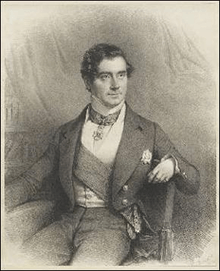 |
Sylvain Van de Weyer (1802–1874) |
• | 30 July 1845 | 31 March 1846 | Independent (Liberal) | Independents | X (1845) | ||
| (5) | .jpg) |
Barthélémy de Theux de Meylandt (1794–1874) |
2 | 31 March 1846 | 12 August 1847 | Independent (Confessional) | Independents | |||
| 8 |  |
Charles Rogier (1800–1885) |
1 | 12 August 1847 | 31 October 1852 | Liberal Party | LP/Pl | XI (1847) XII (1850) | ||
| 9 |  |
Henri de Brouckère (1801–1891) |
• | 31 October 1852 | 30 March 1855 | Liberal Party | LP/Pl | XIII (1852) | ||
| 10 |  |
Pierre de Decker (1812–1891) |
• | 30 March 1855 | 9 November 1857 | Catholic Party | KP/Pc–LP/Pl | IXX (1854) XX (1856) | ||
| (8) |  |
Charles Rogier (1800–1885) |
2 | 9 November 1857 | 3 January 1868 | Liberal Party | LP/Pl | XXI (1857) to XXVI (1866) | ||
| 11 |  |
Walthère Frère-Orban (1812–1896) |
1 | 3 January 1868 | 2 July 1870 | Liberal Party | LP/Pl | XXV (1868) | Leopold II (1865–1909) | |
| 12 |  |
Jules d'Anethan (1803–1888) |
• | 2 July 1870 | 7 December 1871 | Catholic Party | KP/Pc | XXVI (Jun 1870) XXVII (Aug 1870) | ||
| (5) | .jpg) |
Barthélémy de Theux de Meylandt (1794–1874) |
3 | 7 December 1871 | 21 August 1874 (died in office) |
Catholic Party | KP/Pc | XXVIII (1872) | ||
| 13 |  |
Jules Malou (1810–1886) |
1 | 21 August 1874 | 19 June 1878 | Catholic Party | KP/Pc | XXIX (1874) XXX (1876) | ||
| (11) |  |
Walthère Frère-Orban (1812–1891) |
2 | 19 June 1878 | 16 June 1884 | Liberal Party | LP/Pl | XXXI (1878) to XXXIII (1882) | ||
| (13) |  |
Jules Malou (1810–1886) |
2 | 16 June 1884 | 26 October 1884 | Catholic Party | KP/Pc | XXXIV (1884) | ||
| 14 |  |
Auguste Marie François Beernaert (1829–1912) |
• | 26 October 1884 | 26 March 1894 | Catholic Party | KP/Pc | XXXV (1886) to XXXVIII (1892) | ||
| 15 |  |
Jules de Burlet (1844–1897) |
• | 26 March 1894 | 25 February 1896 | Catholic Party | KP/Pc | XXXIX (1894) | ||
| 16 |  |
Paul de Smet de Naeyer (1843–1913) |
1 | 25 February 1896 | 24 January 1899 | Catholic Party | KP/Pc | XL (1896) | ||
| 17 |  |
Jules Vandenpeereboom (1843–1917) |
• | 24 January 1899 | 5 August 1899 | Catholic Party | KP/Pc | XLI (1898) | ||
| (16) |  |
Paul de Smet de Naeyer (1843–1913) |
2 | 5 August 1899 | 2 May 1907 | Catholic Party | KP/Pc | XLII (1898) to XLVI (1906) | ||
| 18 |  |
Jules de Trooz (1857–1907) |
• | 2 May 1907 | 31 December 1907 (died in office) |
Catholic Party | KP/Pc | |||
| 19 |  |
Frans Schollaert (1851–1917) |
• | 9 January 1908 | 17 June 1911 | Catholic Party | KP/Pc | XLVII (1908) | ||
| 20 |  |
Charles de Broqueville (1860–1940) |
1 | 17 June 1911 | 1 June 1918 | Catholic Party | KP/Pc | XLVIII (1910) to L (1914) | ||
| 21 | 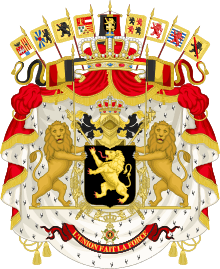 |
Gérard Cooreman (1852–1926) |
• | 1 June 1918 | 21 November 1918 | Catholic Party | KP/Pc | |||
Prime Ministers
- Political parties
- Political parties
Independent
Catholic Party
Liberal Party
Socialist Party
Christian Social Party
Christian Democratic and Flemish
Flemish Liberals and Democrats
Reformist Movement
| # | Portrait | Name (Born–Died) |
Took office | Left office | Political Party | Political Coalition | Legislature (Election) |
Monarch (Reign) | ||
|---|---|---|---|---|---|---|---|---|---|---|
| 22 |  |
Léon Delacroix (1867–1929) |
1 | 21 November 1918 | 2 December 1919 | Catholic Party | KP/Pc–LP/Pl–BWP/POB | LI (1919) | Albert I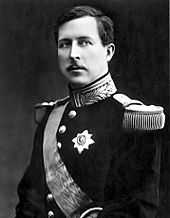 (1909–1934) | |
| 2 | 2 December 1919 | 20 November 1920 | ||||||||
| 23 |  |
Henri Carton de Wiart (1869–1951) |
• | 20 November 1920 | 16 December 1921 | Catholic Party | KP/Pc–LP/Pl–BWP/POB | |||
| 24 |  |
Georges Theunis (1873–1966) |
1 | 16 December 1921 | 13 May 1925 | Catholic Party | KP/Pc–LP/Pl | LII (1921) | ||
| 25 |  |
Aloys Van de Vyvere (1871–1961) |
• | 13 May 1925 | 17 June 1925 | Catholic Party | KP/Pc | LIII (1925) | ||
| 26 |  |
Prosper Poullet (1868–1937) |
• | 17 June 1925 | 20 May 1926 | Catholic Party | KP/Pc–BWP/POB | |||
| 27 |  |
Henri Jaspar (1870–1939) |
1 | 20 May 1926 | 22 November 1927 | Catholic Party | KP/Pc–LP/Pl–BWP/POB | |||
| 2 | 22 November 1927 | 6 June 1931 | KP/Pc–LP/Pl | LIV (1929) | ||||||
| 28 |  |
Jules Renkin (1862–1934) |
• | 6 June 1931 | 22 October 1932 | Catholic Party | KP/Pc–LP/Pl | |||
| (20) |  |
Charles de Broqueville (1860–1940) |
2 | 22 October 1932 | 20 November 1934 | Catholic Party | KP/Pc–LP/Pl | LV (1932) | ||
| (24) |  |
Georges Theunis (1873–1966) |
2 | 20 November 1934 | 25 March 1935 | Catholic Party | KP/Pc–LP/Pl | Leopold III.jpg) (1934–1944) | ||
| 29 |  |
Paul van Zeeland (1894–1973) |
1 | 25 March 1935 | 13 June 1936 | Catholic Party | KP/Pc–LP/Pl–BWP/POB | |||
| 2 | 13 June 1936 | 24 November 1937 | LVI (1936) | |||||||
| 30 | 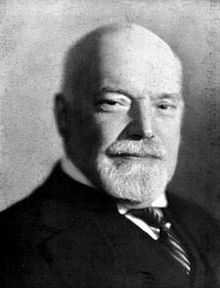 |
Paul-Émile Janson (1873–1944) |
• | 24 November 1937 | 15 May 1938 | Liberal Party | KP/Pc–LP/Pl–BWP/POB | |||
| 31 |  |
Paul-Henri Spaak (1899–1972) |
1 | 15 May 1938 | 22 February 1939 | Belgian Labour Party | KP/Pc–LP/Pl–BWP/POB | |||
| 32 | .jpg) |
Hubert Pierlot (1883–1963) |
1 | 22 February 1939 | 16 April 1939 | Catholic Party | KP/Pc–LP/Pl | LVII (1939) | ||
| 2 | 16 April 1939 | 3 September 1939 | ||||||||
| 3 | 3 September 1939 | 28 May 1940 | KP/Pc–LP/Pl–BSP/PSB | |||||||
| 4 | 28 May 1940 | 27 September 1944 | ||||||||
| 5 | 27 September 1944 | 12 December 1944 | KP/Pc–LP/Pl–BSP/PSB–KPB-PCB | Prince Charles Regent (1944–1950) | ||||||
| 6 | 12 December 1944 | 12 February 1945 | KP/Pc–LP/Pl–BSP/PSB | |||||||
| 33 |  |
Achille Van Acker (1898–1975) |
1 | 12 February 1945 | 2 August 1945 | Belgian Socialist Party | BSP/PSB–KP/Pc–LP/Pl | |||
| 2 | 2 August 1945 | 13 March 1946 | BSP/PSB–BDU/UDB–LP/Pl–KPB-PCB | LVIII (1946) | ||||||
| (31) |  |
Paul-Henri Spaak (1899–1972) |
2 | 13 March 1946 | 31 March 1946 | Belgian Socialist Party | BSP/PSB–PSC/CVP | |||
| (33) |  |
Achille Van Acker (1898–1975) |
3 | 31 March 1946 | 3 August 1946 | Belgian Socialist Party | BSP/PSB–LP/Pl–KPB-PCB | |||
| 34 | 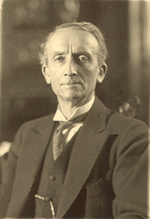 |
Camille Huysmans (1871–1968) |
• | 3 August 1946 | 20 March 1947 | Belgian Socialist Party | BSP/PSB–LP/Pl–KPB-PCB | |||
| (31) |  |
Paul-Henri Spaak (1899–1972) |
3 | 20 March 1947 | 27 November 1948 | Belgian Socialist Party | BSP/PSB–PSC/CVP | |||
| 4 | 27 November 1948 | 11 August 1949 | ||||||||
| 35 |  |
Gaston Eyskens (1905–1988) |
1 | 11 August 1949 | 8 June 1950 | Christian Social Party | PSC/CVP–LP/Pl | LIX (1949) | ||
| 36 |  |
Jean Duvieusart (1900–1977) |
• | 8 June 1950 | 16 August 1950 | Christian Social Party | PSC/CVP | LX (1950) | ||
| 37 | Joseph Pholien (1884–1968) |
• | 16 August 1950 | 15 January 1952 | Christian Social Party | PSC/CVP | Baudouin (1950–1993) | |||
| 38 | Jean Van Houtte (1907–1991) |
• | 15 January 1952 | 23 April 1954 | Christian Social Party | PSC/CVP | ||||
| (33) | Achille Van Acker (1898–1975) |
4 | 23 April 1954 | 26 June 1958 | Belgian Socialist Party | BSP/PSB–LP/Pl | LXI (1954) | |||
| (35) |  |
Gaston Eyskens (1905–1988) |
2 | 26 June 1958 | 6 November 1958 | Christian Social Party | PSC/CVP | LXII (1958) | ||
| 3 | 6 November 1958 | 3 September 1960 | PSC/CVP–LP/Pl | |||||||
| 4 | 3 September 1960 | 25 April 1961 | ||||||||
| 39 |  |
Théo Lefèvre (1914–1973) |
• | 25 April 1961 | 28 July 1965 | Christian Social Party | PSC/CVP–BSP/PSB | LXIII (1961) | ||
| 40 | |
Pierre Harmel (1911–2009) |
• | 28 July 1965 | 19 March 1966 | Christian Social Party | PSC/CVP–BSP/PSB | LXIV (1965) | ||
| 41 |  |
Paul Vanden Boeynants (1919–2001) |
1 | 19 March 1966 | 17 July 1968 | Christian Social Party | PSC/CVP–PVV/PLP | |||
| (35) |  |
Gaston Eyskens (1905–1988) |
5 | 17 July 1968 | 20 January 1972 | Christian People's Party | CVP/PSC–BSP/PSB | LXV (1968) | ||
| 6 | 20 January 1972 | 26 January 1973 | LXVI (1971) | |||||||
| 42 |  |
Edmond Leburton (1915–1997) |
1 | 26 January 1973 | 23 October 1973 | Belgian Socialist Party | BSP/PSB–CVP/PSC–PVV/PLP | |||
| 2 | 23 October 1973 | 25 April 1974 | BSP/PSB–CVP/PSC | |||||||
| 43 |  |
Leo Tindemans (1922-2014) |
1 | 25 April 1974 | 3 June 1977 | Christian People's Party | CVP/PSC–PVV/PLP | LXVII (1974) | ||
| 2 | 3 June 1977 | 20 October 1978 | CVP/PSC–SP/PS–VU/FDF | LXVIII (1977) | ||||||
| (41) |  |
Paul Vanden Boeynants (1919–2001) |
2 | 20 October 1978 | 3 April 1979 | Christian Social Party | CVP/PSC–SP/PS–VU/FDF | LXIX (1978) | ||
| 44 |  |
Wilfried Martens (1936–2013) |
1 | 3 April 1979 | 23 January 1980 | Christian People's Party | CVP/PSC–SP/PS–VU/FDF | |||
| 2 | 23 January 1980 | 18 May 1980 | CVP/PSC–SP/PS | |||||||
| 3 | 18 May 1980 | 22 October 1980 | CVP/PSC–SP/PS–PVV/PRL | |||||||
| 4 | 22 October 1980 | 31 March 1981 | CVP/PSC–SP/PS | |||||||
| 45 |  |
Mark Eyskens (born in 1933) |
• | 31 March 1981 | 17 December 1981 | Christian People's Party | CVP/PSC–SP/PS | LXX (1981) | ||
| (44) |  |
Wilfried Martens (1936–2013) |
5 | 17 December 1981 | 28 November 1985 | Christian People's Party | CVP/PSC–SP/PS–PVV/PRL | |||
| 6 | 28 November 1985 | 21 October 1987 | LXX (1985) | |||||||
| 7 | 21 October 1987 | 9 May 1988 | CVP/PSC–PVV/PRL | LXXI (1987) | ||||||
| 8 | 9 May 1988 | 29 September 1991 | CVP/PSC–SP/PS–VU/FDF | |||||||
| 9 | 29 September 1991 | 7 March 1992 | CVP/PSC–SP/PS | LXXII (1991) | ||||||
| 46 |  |
Jean-Luc Dehaene (1940–2014) |
1 | 7 March 1992 | 21 May 1995 | Christian People's Party | CVP/PSC–SP/PS | |||
| 2 | 21 May 1995 | 12 July 1999 | LXXIII (1995) | Albert II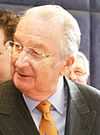 (1993–2013) | ||||||
| 47 |  |
Guy Verhofstadt (born in 1953) |
1 | 12 July 1999 | 12 July 2003 | Flemish Liberals and Democrats | VLD/PRL–SP/PS–Green/Ecologist | LXXIV (1999) | ||
| 2 | 12 July 2003 | 21 December 2007 | VLD/MR–SP/PS | LXXV (2003) | ||||||
| 3 | 21 December 2007 | 20 March 2008 | VLD/MR–CD&V/CDH–SP/PS | LXXVI (2007) | ||||||
| 48 |  |
Yves Leterme (born in 1960) |
1 | 20 March 2008 | 30 December 2008 | Christian Democratic and Flemish | CD&V/CDH–SP/PS–VLD/MR | |||
| 49 |  |
Herman Van Rompuy (born in 1947) |
• | 30 December 2008 | 25 November 2009 | Christian Democratic and Flemish | CD&V/CDH–VLD/MR–PS | |||
| (48) |  |
Yves Leterme (born in 1960) |
2 | 25 November 2009 | 6 December 2011 | Christian Democratic and Flemish | CD&V/CDH–VLD/MR–PS | |||
| 50 |  |
Elio Di Rupo (born in 1951) |
• | 6 December 2011 | 11 October 2014 | Socialist Party | SP/PS–CD&V/CDH–VLD/MR | LXXVII (2010) | ||
Philippe (2013–) | ||||||||||
| 51 |  |
Charles Michel (born in 1975) |
• | 11 October 2014 | Incumbent | Reformist Movement | VLD/MR–N-VA–CD&V | LXXVIII (2014) | ||
Timeline since 1918

See also
- List of Belgian monarchs
- List of Belgian Prime Ministers by political affiliation
- List of Belgian Prime Ministers by time in office
- Minister-President of the Brussels Capital-Region
- Minister-President of Flanders
- Minister-President of the French Community
- Minister-President of the German-speaking Community
- Minister-President of the Walloon Region
- History of Belgium
- Lists of incumbents
- Politics of Belgium
References
- ↑ (Formation)
- ↑ Wetstraat 16 - virtueel bezoek - de ingang - premier.fgov.be, Aardse wetstraat, warandepark.blogspot.com (15/12/2007)
- ↑ Wetstraat 16 - virtueel bezoek - de ingang - premier.fgov.be
- ↑ Wetstraat 16 - virtueel bezoek - de hal - premier.fgov.be
| |||||||||||||||||||||||||||||||||||||||||||||
| ||||||||||||||
| ||||||||||||||||||||||||||||||||||



